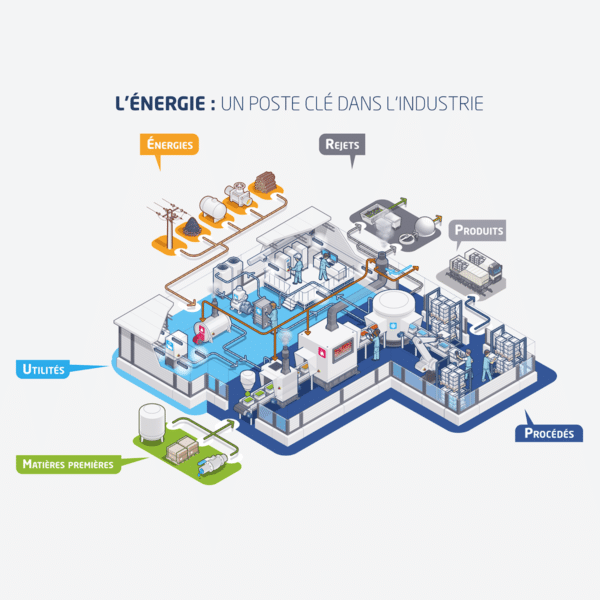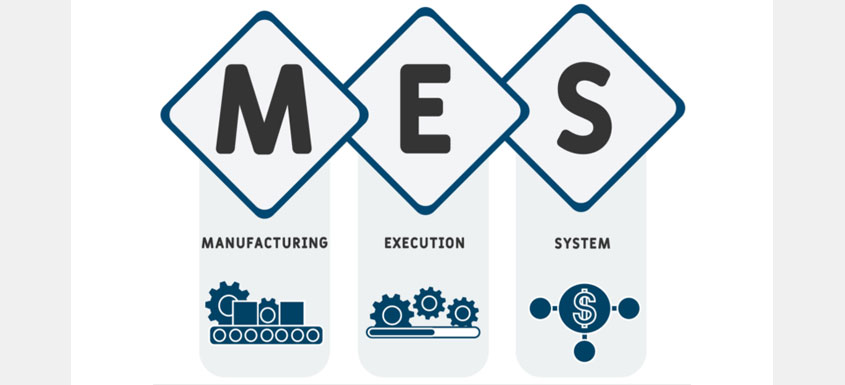
The era of Industry 4.0 has marked a decisive turning point where data plays a central role in performance improvement. By leveraging the information collected through the Internet of Things (IoT) and advanced technologies, manufacturers can now optimize their supply chains, reduce energy bills by 4 to 15%, and implement effective predictive maintenance. By integrating this real-time data and remotely monitoring manufacturing processes, factories are becoming more dynamic, flexible, and transparent.

Industry 4.0 marks a revolution in the manufacturing and production world due to the growing importance of data. By utilizing advanced technologies such as the Internet of Things (IoT) and real-time data analytics, manufacturers can not only optimize their supply chains but also significantly reduce their energy costs. Smart sensors and machine learning algorithms enable flexible, dynamic, and transparent production. This article explores different strategies and solutions for optimizing the performance of your industrial operations through collected data.
Table des matières
ToggleThe role of data in Industry 4.0
With the advent of Industry 4.0, data has become a valuable resource for industrial companies. It enables informed decision-making and the provision of innovative solutions. In particular, the information obtained from sensors installed on machines and equipment helps in monitoring and optimizing operations in real-time.
Reducing energy costs through data
Manufacturers can significantly reduce their energy bills, often between 4 and 15%, through in-depth analysis of energy data. This is possible without compromising production quality. By real-time monitoring of energy consumption and identifying inefficiencies, companies can implement more effective energy management strategies.
A dynamic and flexible production
Smart sensors and IoT technologies provide dynamic, flexible, and transparent production. The collected data allows for continuous monitoring and adjustment of production processes, ensuring maximum efficiency. This leads to better resource management and optimization of production cycles.
Supply chain optimization
Real-time tracking
Thanks to Industry 4.0 technologies, it is possible to significantly improve the logistics chain through real-time data sharing. Optimized tracking allows for reduced delays and better inventory management, leading to cost reductions and increased customer satisfaction.
Anticipating needs
Predictive analytics, based on collected data, allows for anticipating future market and customer needs. Thus, companies can adjust their production accordingly and avoid overstocking or product shortages.
Predictive maintenance and remote monitoring
Predictive maintenance is a key application of Industry 4.0. It allows for anticipating failures and planning maintenance interventions before they become critical. Remote monitoring of equipment helps in optimizing machine utilization rates, thus reducing downtime and improving overall productivity.
Strategies to leverage data
Adopting a data-driven approach requires strategic planning. Companies must invest in appropriate technologies, train their personnel in data analysis, and integrate data into their decision-making processes. Implementing data-based energy and resource management systems is essential for achieving optimal performance.
Industry 4.0 offers unprecedented opportunities for improving industrial performance through advanced use of data. By adopting these technologies and implementing data-driven strategies, companies can not only optimize their production processes but also ensure more efficient resource management, leading to cost reductions and increased profitability.
- Reduction of energy costs: Data enables energy bills to be lowered by 4 to 15% without compromising quality.
- Flexible production: Smart sensors ensure dynamic, flexible, and transparent production.
- Supply chain optimization: Real-time data sharing for optimized tracking.
- Predictive maintenance: Monitor machines and anticipate failures to optimize utilization rates.
- Remote monitoring: IoT and new technologies enable continuous process monitoring.
- Real-time data capture: Efficiency improvement through instant data collection.
- Data analysis: Market and customer needs prediction through data analysis.
- Optimized maintenance: Utilizing predictive maintenance to maximize performance.
[Industrie 4.0] répondez au questionnaire 2024 de@wavestoneFR (en partenariat avec France Industrie @LaFrenchFab et @HubFranceIA) :
— France Industrie (@FR_Industrie) May 22, 2024
en 10 minutes maximum contribuez ainsi à suivre l’évolution des tendances en France ➡ https://t.co/P6jKJjSuEr





